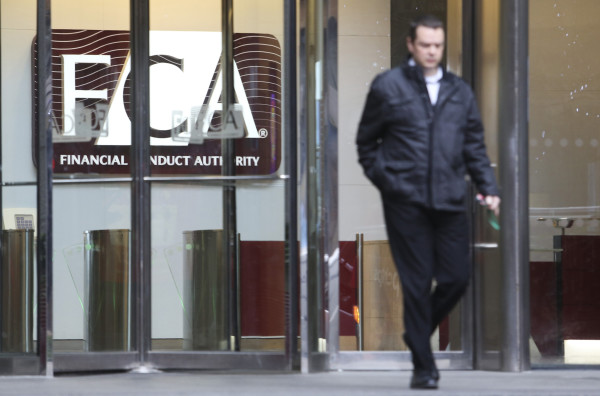

The Financial Conduct Authority’s decision to ban contingent charging could pale in comparison with a potential crackdown on ongoing advice fees, commentators have warned.
As the regulator moved to finalise its ban on contingent charging last week, it also took aim at ongoing advice charges in the defined benefit sector that it said potentially created “strong monetary incentives” for advisers.
Mike Barrett, consulting director at the Lang Cat, warned the regulator’s renewed salvo against conflicts of interest in the pension advice market could have a far wider-reaching impact.
He said: “Obviously last week’s policy statement was aimed at DB transfers, so the question is, does the FCA have this view for the wider market – pension switching, or advice generally?
“Considering some of the wider mood music and other publications, I think the answer might be yes. Or at least, it’s an area it is concerned enough with to be taking a further look.
“It’s too early to say exactly what the regulator’s view of ongoing charges is, but I do think it’s fair to say this is an area it will look into.”
His views were echoed by Tim Morris, IFA with Russell & Co, who said: “I have been concerned for a while that ongoing advice charges could come under pressure next. The implications of removing percentage charging could be massive.
“If businesses move to fixed fees, that won’t be an issue, especially for more forward-thinking firms who already offer that.”
Mr Morris called this more of a “bad headache” rather than a “fatal blow”, but warned that, if the FCA banned ongoing fees as they did with commission, this “could be fatal for many advice firms. The majority rely on ongoing advice fees for the lion’s share of their income”.
In a ‘Dear CEO’ letter sent to advisers at the beginning of the year, the FCA revealed it would be carrying out further work on the suitability of advice in the form of the Assessing Suitability Review 2, which would focus on initial and ongoing advice to consumers on taking an income in retirement.
Mr Barrett added: “I think the reference to ongoing advice is key here, and from what I saw of the AS2 questionnaires that were sent to advice firms in February, there were a lot of questions along these lines.
“This work has been pushed back until the start of next year though, so it will presumably be a long while until we get to any changes coming through.”
Data collected by the Lang Cat in December last year found almost 70 per cent of advisers charged an ongoing fee for their services. Of these, around four in 10 charged 1 per cent, and almost half charged between 0.5 and 0.75 per cent.

Contingent charging ban
In its June 5 policy statement, the FCA said it was in the best interest of both the DB market and consumers to push ahead with its contingent charging ban. The FCA warned the charges created a conflict of interest and over time risked a “significant negative financial impact” on a consumer’s pension income.
From October 1, advisers cannot charge for advice on this basis, save in certain exceptional circumstances, and clients will have to pay whether they go ahead with the transfer or not.
Some industry figures said the move could lead to companies pulling out of the market, making it harder for clients to access transfer advice.
But others welcomed the decision, saying it would remove conflict of interest concerns and stop unscrupulous advisers pushing ahead with a transfer when it is not in a client’s best interest.
Fiona Tait, technical director at Intelligent Pensions, said the ban will help companies to clearly outline the services on offer to clients and make it clear what they are paying for.
Ms Tait said: “Contingent charging presents a significant conflict of interest and that it also devalued the worth of the advice process itself as opposed to simply facilitating a product transaction.
“We are, however, disappointed to see that implementation fees are still covered by the ban, as we currently offset this charge for transfer clients in recognition of the fee already paid and will as a consequence have to discontinue this practice.”
Previous campaigns
The FCA’s crackdown on DB transfer advice, and the subsequent ban, is the result of a long-running campaign by groups such as the Work and Pensions Committee and British Steel Pension Scheme members.
The WPC consistently argued advisers could be incentivised to give bad advice when using a contingent charging fee structure and launched its own inquiry into the matter in January 2019.
The question of poor DB advice was thrust into the spotlight by the British Steel debacle, in which thousands were misled into transferring out of their DB scheme.
The FCA announced last week it would write directly to around 7,700 former members of BSPS to invite them to revisit the advice they received, and complain if they had concerns.
Philippa Hann, partner at Clarke Willmott, who has been helping steelworkers bring claims against advisers, said she welcomed the FCA’s intervention.
The FCA has been approached for comment.
amy.austin@ft.com, rachel.mortimer@ft.com
What do you think about the issues raised by this story? Email us on fa.letters@ft.com to let us know



